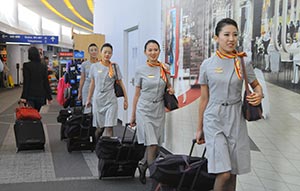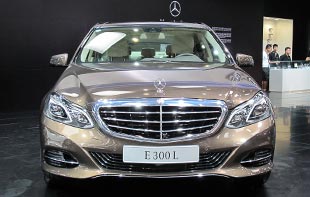

Economic violations in disguise
Police said about 7 to 10 percent of sales volume went to doctors' personal accounts. Once a doctor agrees to cooperate with GSK China, the company will establish the doctor's file and pay a bonus to the doctor based on his or her prescriptions of the firm's drugs.
For those doctors who avoid receiving money, GSK China's salespeople would invite them to academic meetings or lectures and provide them with gifts, free travel after meetings and lecture fees.
In fact, many doctors received lecture fees even when the lectures did not exist. Wang just forged lecture materials in order to obtain reimbursements from the company.
The police found that under GSK China executives' acquiescence and even encouragement in forged forms, pharmaceutical representatives reimbursed a large amount of money in the name of lecture fees, covering various expenses including travel and other entertainment, to help the company avoid legal risks.
Turning doctors to drug sellers
Yu Fu (pseudonym), a respiratory department director of a reputable hospital (the name of which was not disclosed), became a client of Wang in 2011.
"When the GSK representative came to me, he told me their company was a leading one in the world, and attached great importance to academic activities," Yu said. "He told me the company also sponsored doctors to attend national or international conferences, covering their registration fees and travel."
Yu said, "After we got more familiar, Wang visited me at festivals, treating me to dinner and buying me gifts. When our department held events, Wang also paid the bill."
Later on, Yu recalled, Wang blatantly offered kickbacks to doctors, for example, 20 yuan ($3.26) for each pack of Seretide, an asthma-treating inhaler; and 10 yuan for each dose of Flixotide, an asthma-treating spray. Wang made all doctors in Yu's department his clients.
According to Li and Wang, the company set the target of raising drug sales by 30 percent annually in the last two years, and the target can only be achieved by pushing doctors to prescribe more if there are no increases in the number of patients.
Yu said, "Generally speaking, hospitals are also inclined to prescribe more."
Wang said bribery related to expenses will push up the sale price of drugs.
On July 21, when Abbas Hussain, a president of GSK in charge of international business, met with a senior official from China's MPS, he professed GSK's plan to adjust the company's business model to cut operational costs in drug prices.
Insiders said squeezing out the bribing cost in drug prices, curbing inflationary drug costs and excessive medical care will bring tangible benefits for consumers. The clampdown provides a good opportunity to tighten supervision.
 Models at Ford pavilion at Chengdu Motor Show
Models at Ford pavilion at Chengdu Motor Show
 Brilliant future expected for Chinese cinema: interview
Brilliant future expected for Chinese cinema: interview
 Chang'an launches Eado XT at Chengdu Motor Show
Chang'an launches Eado XT at Chengdu Motor Show
 Hainan Airlines makes maiden flight to Chicago
Hainan Airlines makes maiden flight to Chicago
 Highlights of 2013 Chengdu Motor Show
Highlights of 2013 Chengdu Motor Show
 New Mercedes E-Class China debut at Chengdu Motor Show
New Mercedes E-Class China debut at Chengdu Motor Show
 'Jurassic Park 3D' remains atop Chinese box office
'Jurassic Park 3D' remains atop Chinese box office
 Beauty reveals secrets of fashion consultant
Beauty reveals secrets of fashion consultant